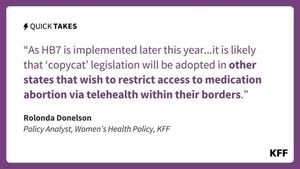State Farm Stadium in Glendale, Arizona, was transformed into a scene that blended the fervor of a political rally with the solemnity of a religious revival on September 21, 2025, as tens of thousands gathered to mourn and celebrate the life of Charlie Kirk, the conservative activist and cofounder of Turning Point USA. The memorial, attended by nearly 100,000 people according to BBC and Reuters, drew a crowd that queued for hours—some camping overnight—eager to pay their respects to a figure who, in death, became a lightning rod for both adulation and controversy.
Kirk, just 31 years old, was assassinated on September 10 while speaking at Utah Valley University. Prosecutors have charged 22-year-old Tyler Robinson with the killing, but the motive remains unclear. The aftermath of Kirk’s death has ignited a fierce debate over political violence and freedom of speech in America, as reported by Reuters. The memorial itself became a stage for these broader national anxieties, with speeches that invoked religious, historical, and political themes in equal measure.
US President Donald Trump headlined the event, delivering a speech that cast Kirk as a martyr and “the greatest evangelist for American liberty.” In Trump’s words, “On that terrible day, September 10th, 2025, our greatest evangelist for American liberty became immortal. He’s a martyr now for American freedom.” Trump’s remarks, highlighted by Reuters and echoed by BBC, underscored his belief that Kirk’s legacy would outlive him, propelling the conservative cause forward.
Trump’s speech did not shy away from the deep divisions that characterize the current American political landscape. “I hate my opponent and I don’t want the best for them,” he declared, pointedly disagreeing with Kirk’s more forgiving philosophy. “I’m sorry, Erika,” he added, referencing Kirk’s widow, Erika Kirk, who had just delivered an emotional call for forgiveness. The president’s frankness drew both laughter and applause from the crowd, which was decked out in MAGA hats and red, white, and blue attire, according to BBC’s on-the-ground reporting.
Erika Kirk, now the CEO of Turning Point USA, offered a starkly different message. Tearful but resolute, she told mourners, “I forgive him because it was what Christ did. And it’s what Charlie would do. The answer to hate is not hate.” She recounted the horror and heartache of losing her husband but emphasized her commitment to continuing his mission: “Charlie and I were united in purpose. His passion was my passion, and now his mission is my mission. Chapters will grow. Thousands of new ones will be created. Turning Point USA Faith will add thousands of new pastors and congregations.”
The event’s program was a testament to Kirk’s influence within conservative circles. Speakers included Vice-President JD Vance, who told the crowd, “We wouldn’t be here without him,” and White House Chief of Staff Susie Wiles, who said, “Charlie didn’t just help, he made the winning difference, I promise you that.” Secretary of State Marco Rubio, Secretary of War Pete Hegseth, and Health Secretary Robert F Kennedy Jr. all took the stage to praise Kirk’s activism and faith, as noted by BBC.
Many speakers elevated Kirk to near-mythic status. US Congresswoman Anna Paulina Luna compared him to George Washington, John F. Kennedy, and Martin Luther King Jr.—the latter a striking juxtaposition, given Kirk’s own public criticisms of King during his life. “Charlie’s name will stand etched in the history besides the likes of JFK … and Dr. King who marched into the jaws of hatred, sacrificing his safety and ultimately his life, to bend the arc of history towards justice,” Luna declared. She also credited Kirk with launching her own political career, saying, “Charlie poured out his youth, his energy and his unshakable resolve to awaken America’s youth from the slumber of complacency.”
Conservative commentator Tucker Carlson drew a biblical parallel, saying Kirk “would have loved” the immense turnout and likening him to a Christian evangelist. “A bunch of guys sitting around eating hummus decided to kill Jesus, to stop him from telling the truth,” Carlson said, drawing a direct line between Kirk’s fate and that of religious martyrs. Far-right influencer Jack Posobiec extended the biblical motif, comparing Kirk to Moses: “On his last day, Charlie Kirk was on the top of a mountain, and Charlie Kirk led us there, and Charlie Kirk has brought us to the promised land.”
Stephen Miller, a top Trump adviser, issued a fiery pledge: “You thought you could kill Charlie Kirk? You have made him immortal. We will save this civilization, to save the West.” Miller’s words captured the combative spirit that permeated much of the memorial, reflecting the sense among many attendees that Kirk’s death would galvanize the conservative movement. “The day that Charlie died, angels wept, but those tears have been turned into fire in our hearts,” Miller proclaimed, as reported by BBC.
Rebecca Dunn, an early donor to Turning Point USA, offered a more personal remembrance. She recounted how she and her late husband, Bill Dunn, were inspired to give millions to Kirk after he, at just 20 years old, raised $25,000 in two days to meet their challenge. “Charlie felt like a son to me,” she said, underscoring the deep personal connections Kirk forged throughout his career.
The memorial’s atmosphere, described by BBC as reminiscent of a megachurch service, featured Christian music, prayer, and moments of collective mourning and celebration. Elon Musk, who had previously clashed publicly with Trump, sat beside the president and later posted a photo of the two with the caption, “For Charlie.” The presence of such high-profile figures only heightened the sense that Kirk’s death marked a pivotal moment for the conservative movement.
Kirk’s legacy is complex. He co-founded Turning Point USA at 18, building it into a formidable force on college campuses and amassing millions of followers on social media—over 5 million on X and 7 million on TikTok, according to BBC. He was known for mobilizing the youth vote for Trump and for his combative, often polarizing style. Kirk’s stances—staunch support for gun rights, opposition to abortion, criticism of transgender rights, and promotion of false claims about COVID-19—made him a hero to many conservatives and a target for fierce criticism from the left. His remarks on race and crime, in particular, drew accusations of racism, Islamophobia, and misogyny.
The political implications of Kirk’s assassination were not lost on anyone in the stadium. Trump and his administration have pledged to prosecute those who mocked Kirk’s death, while companies and media outlets have faced pressure to fire staff over comments about him, as reported by Reuters. The event laid bare the extreme polarization gripping the nation, with the right blaming the left for stoking violence and the left warning of government overreach in the name of security.
As the crowd chanted “U-S-A, U-S-A” and the service drew to a close, the legacy of Charlie Kirk—martyr, activist, divisive figure—remained fiercely contested. For his supporters, Kirk’s death is a rallying cry; for his critics, a moment to reflect on the costs of political extremism. In the end, the memorial was less a farewell than a call to arms, signaling that the debates and divisions Kirk embodied are far from over.






